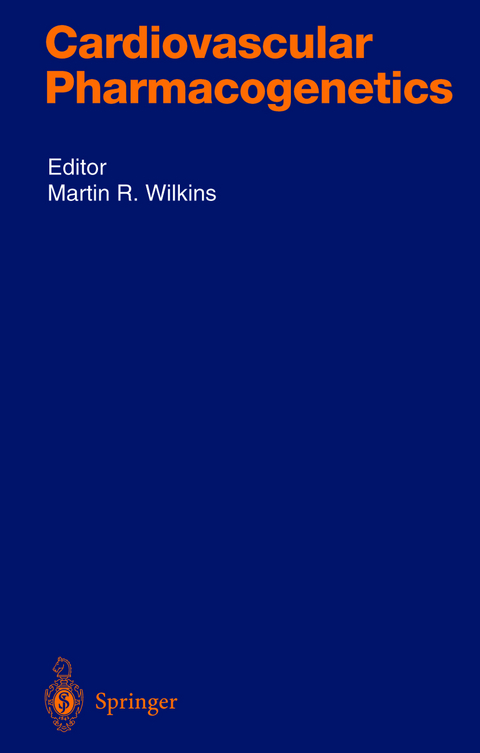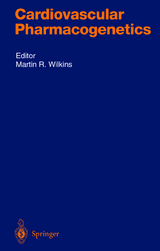Cardiovascular Pharmacogenetics
Springer Berlin (Verlag)
978-3-540-40204-6 (ISBN)
The Human Genome Project was sold to the general public largely on the basis that a complete picture of the structure of human DNA would lead to new and better medicines. These medicines would be better because they would be tailored to individual patients, maximising the chances of a therapeutic response and mi nimising the risks of an adverse event. Taking the idea further, pundits have pre dicted that the time will come when we could carry our DNA on a card which could be read rapidly and enable the physician to choose the best drug. This is the future. This is pharmacogenetics. When the draft human DNA sequence was announced and scientists were as ked how this would help drug development, the example most frequently given was the debrisoquine model - where poor metabolisers of this hypotensive agent are exposed to higher plasma levels from a standard dose and at risk of collapse from excessive hypotension. This observation was made over 20 years ago and predated designs to sequence the human genome. Nonetheless, it raised aware ness of variation in drug metabolism and was correctly assigned to genetic poly morphisms affecting CYP2D6. Together with the discovery of pseudocholinestera se deficiency, it marked the birth of pharmacogenetics. The debrisoquine example is an interesting one and worthy of further analysis.
The Role of Genotyping in Pharmacological Therapy.- Pharmacogenetics and the Treatment of Cardiovascular Disease.- Genetic Polymorphisms and Cardiovascular Drug Metabolism.- Genes That Modify Susceptibility to Atherosclerosis: Targets for Drug Action.- Lipid-Lowering Responses Modified by Genetic Variation.- The Genetic Basis of Essential Hypertension and Its Implications for Treatment.- Genetic Predisposition to Cardiac Hypertrophy.- Genetic Determinants of Susceptibility, Prognosis and Treatment in Heart Failure.- The Genetics of Cardiac Channelopathies: Implications for Therapeutics.- Insulin Resistance and Cardiovascular Disease: New Insights from Genetics.- Genetic Disruption of Nitric Oxide Synthases and Cardiovascular Disease: Lessons from a Candidate Gene.- Association of Thrombotic Disease with Genetic Polymorphism of Haemostatic Genes: Relevance to Pharmacogenetics.- The Influence of Genetic Factors on Leukocyte and Endothelial Cell Adhesion Molecules.- Genetic Regulation of Metalloproteinase Activity: Pathogenic and Therapeutic Implications.- Current Perspectives on Gene and Cell-Based Therapies for Myocardial Protection, Rescue and Repair.
| Erscheint lt. Verlag | 2.12.2003 |
|---|---|
| Reihe/Serie | Handbook of Experimental Pharmacology |
| Zusatzinfo | X, 407 p. |
| Verlagsort | Berlin |
| Sprache | englisch |
| Maße | 155 x 235 mm |
| Gewicht | 915 g |
| Themenwelt | Medizinische Fachgebiete ► Innere Medizin ► Kardiologie / Angiologie |
| Medizin / Pharmazie ► Pharmazie | |
| Schlagworte | Cardiovascular • Cardiovascular Disease • genes • Genetics • genotyping • Hypertension • Kardiologie • Lipid Lowering Responses • Pharmacogenetics • Pharmakogenetik |
| ISBN-10 | 3-540-40204-7 / 3540402047 |
| ISBN-13 | 978-3-540-40204-6 / 9783540402046 |
| Zustand | Neuware |
| Informationen gemäß Produktsicherheitsverordnung (GPSR) | |
| Haben Sie eine Frage zum Produkt? |
aus dem Bereich




